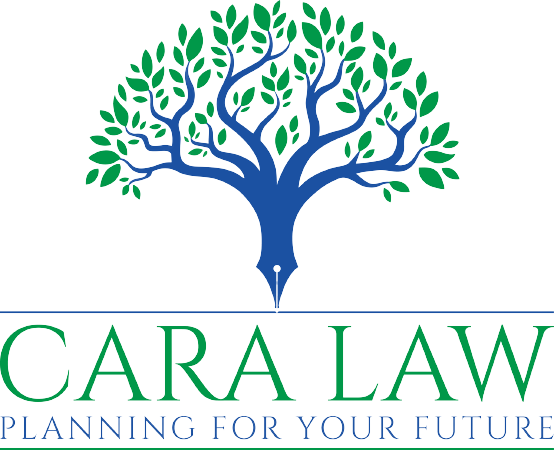 Takeaways
Takeaways
-
Estate planning is crucial for everyone, regardless of age or wealth, to protect your family, money, property, and wishes.
-
Many common myths about estate planning can lead to significant problems. Consult a professional and regularly update your plan to ensure your wishes are honored and loved ones are protected.
Many people delay estate planning because they believe it’s only for the wealthy, the elderly, or those with complex assets. Unfortunately, these misconceptions can lead to costly and painful consequences for loved ones left behind, or even for you while you are still alive. Estate planning is about far more than just distributing assets; it’s about protecting your family, your wishes, and your legacy. Below are some of the most common myths about estate planning and the facts that debunk them.
Myth #1: You Don’t Own Enough to Need an Estate Plan
Estate planning isn’t only for the wealthy; it’s for anyone who owns property, has children, or wants control over their health decisions and what happens to their assets. Even if you only have a modest home, a car, and a bank account, you have an estate.
Without a properly prepared estate plan, state laws determine who can make medical decisions for you if you are unable to and who inherits your property. The person, or persons, the state chooses may not make decisions that are in line with your beliefs or wishes.
Estate planning also helps minimize family conflict, ensures that debts and taxes are handled properly, and allows you to appoint someone to manage your affairs if you become incapacitated. These benefits apply to everyone, not just those with large estates.
Myth #2: You Are Too Young for an Estate Plan
Tragedy, illness, or accidents can strike at any age. Estate planning isn’t just about preparing for death; it’s also about preparing for the unexpected. If you’re incapacitated because of illness or injury, who will make medical or financial decisions on your behalf? Documents like a durable power of attorney and health care proxy allow you to choose trusted individuals to act for you.
Younger adults should also name guardians for their minor children in their will or with a specific guardian nomination document. If a guardian is not specified, a court will choose one to raise the children. The guardian the court chooses may or may not be the one you would pick.
Myth #3: Your Will Takes Care of Everything
A will is a key component of an estate plan, but it doesn’t necessarily cover everything. For example, jointly owned property and assets with designated beneficiaries (like retirement accounts and life insurance policies) bypass your will. A will also won’t help if you become unable to manage your own affairs. To cover that potential scenario, you need powers of attorney and advance health care directives.
After a person dies, their will must go through probate, which is a public and sometimes lengthy and expensive court process. A comprehensive estate plan can include a revocable living trust, which allows your estate to avoid probate and offers more privacy and flexibility.
Myth #4: You Can Write Your Own Will
Do-It-Yourself estate planning templates and online tools might seem convenient, but they can’t fully account for individual circumstances or changing state laws. Small errors, such as a missing signature, incorrect witness requirements, or ambiguous language, can make a will invalid or lead to family disputes.
Working with an experienced estate planning attorney ensures your documents are legally sound, customized to your needs, and coordinated with other assets like retirement accounts and trusts. The upfront cost often saves your loved ones significant time, stress, and money later.
Myth #5: Once You’ve Signed Your Estate Plan, You’re Finished With It
Estate planning is not a one-time event. Life changes, such as marriage, divorce, the birth of a child, a move to another state, or changes in your finances, can make parts of your plan outdated. Experts recommend reviewing your plan at least every three to five years or after any major life event. Failing to update beneficiary designations or ownership titles can lead to unintended outcomes, like an ex-spouse inheriting assets.
Myth #6: Your Family Will Know What to Do
Even the most well-intentioned family members can disagree about what you “would have wanted.” Clear, written instructions are the best way to avoid confusion and conflict. A good estate plan provides not only legal documents but also guidance on funeral wishes, digital accounts, and personal property distribution.
Discussing your plan openly with loved ones can also reduce misunderstandings and help them feel more prepared.
Myth #7: Estate Planning Is Only About Money
The estate planning process is about protecting people, not just property. It allows you to make decisions about medical care, long-term care preferences, end-of-life wishes, and guardianship for children or dependents. It can also include charitable giving, legacy planning, and instructions for family businesses or pets.
Myth #8: A Revocable Trust Will Protect Assets From Creditors
A revocable trust is a useful estate planning tool that provides its creator and funder with benefits and flexibility. However, since the creator of the trust (often referred to as the grantor or settlor) retains control of the trust’s assets, they are not hidden or protected from creditors or liability stemming from lawsuits. To protect your assets more fully, you need to relinquish control of them by using other legal instruments, such as an irrevocable trust.
The Bottom Line
Estate planning gives you control over what happens to your assets, your health care, and your loved ones. The myths that prevent people from planning often lead to unnecessary hardship for families. Whether your estate is large or small, an up-to-date and legally sound plan is one of the most thoughtful gifts you can leave your loved ones.
If you haven’t started your estate planning documents, or if it’s been several years since you updated your plan, now is the time to act. Consult with a qualified professional to ensure your wishes are clearly defined and your loved ones are protected.
Additional Reading
For additional reading on topics related to estate planning, check out the following articles:





